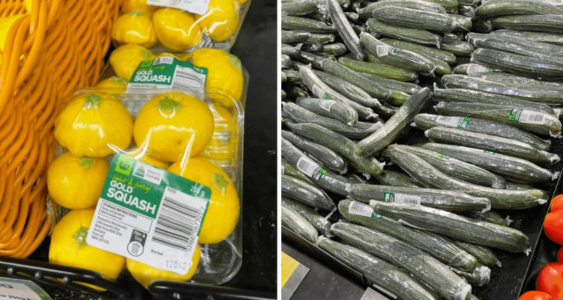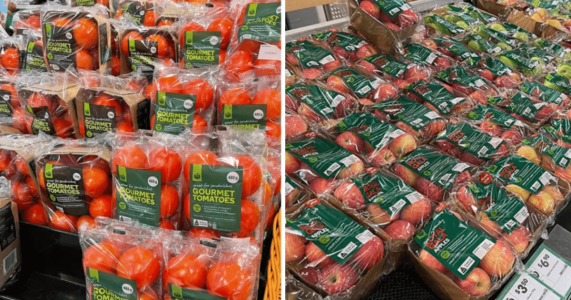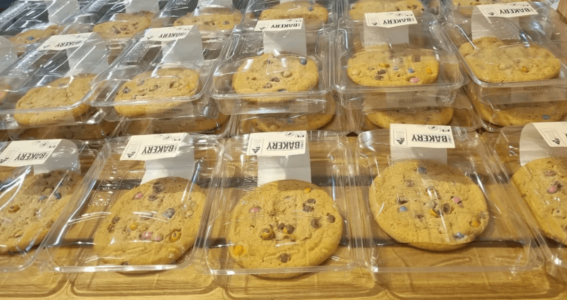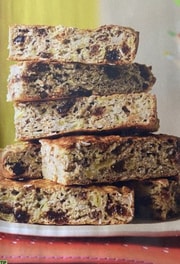Unpacking the issue: Supermarkets under fire for excessive plastic packaging
- Replies 20
Say goodbye to straws, takeaway coffee cups, single-use plates, and cutlery – businesses and individuals are finally waking up to the environmental impact of plastic use.
But unfortunately, despite the growing awareness, major supermarkets seem to be stuck in their old ways when it comes to plastic packaging.
Recently, Coles and Woolworths faced a storm of backlash from customers fed up with their excessive plastic use and lack of eco-friendly efforts.
We've all grown accustomed to our grocery bags brimming with plastic, but this time, the criticism hit harder than ever.

Let's take a stroll through the lush produce section of our beloved Woolies. It's a haven for fresh fruits and veggies, right?
Well, not so fast. A frustrated Victorian shopper recently took matters into his own hands and shared his outrage on Facebook with some jaw-dropping photos.
The pictures tell a sorry tale. Zucchinis, cucumbers, squashes, and tomatoes, all bundled up in unnecessary plastic, cluttering the shelves. It's a plastic overload that's hard to ignore, and it's leaving eco-conscious shoppers scratching their heads in disbelief.
'A huge percentage of everything was covered in single-use plastic,' he lamented, adding that it's no wonder our plastic waste problem is such a huge matter considering the excessive usage.
Let's make our way to the tempting bakery section of Coles. The aroma of freshly baked goods fills the air, and our taste buds are ready for a treat. But hold on a second – what's this? Another concerned customer recently stumbled upon a shocking sight that left her fuming.
In disbelief, she shared an image on social media of an entire shelf filled with single cookies, each one in its own plastic container. 'This makes me angry,' she exclaimed. 'So much plastic for one cookie… Coles, you need to fix this.'
It's moments like these that make us question the excessive plastic packaging in our everyday lives. Do we really need that much plastic for a single cookie? It's time for supermarkets to step up and address these plastic blunders.

In response to the public's stand, both Coles and Woolies were quick to defend their sustainability practices and note the environmental initiatives that they already have in place.
Woolies said that they had removed over 800 tonnes of plastic from their fruit and vegetable range in recent years. They also emphasised that plastic packaging plays a role in reducing food wastage. For example, plastic-wrapped continental cucumbers have a longer shelf life, lasting three times longer than unwrapped ones.
In a groundbreaking move, Woolworths will take it a step further by discontinuing the sale of reusable plastic shopping bags nationwide later this year, becoming the first major Australian supermarket to do so.
The retailer had already phased out single-use plastic shopping bags in 2018. Read more about it here.
Coles, too, has taken note of the concerns raised by their customers and has implemented various strategies as part of their commitment to reducing single-use plastics.
According to a spokesperson, their Bakery cookies are packaged using recyclable materials made from 100% recycled plastic.
This is just one of the many initiatives that Coles has adopted as part of their ambitious Together to Zero waste campaign, which aims to reduce problematic and unnecessary single-use plastic packaging in their Coles Own Brand products.

However, not everyone is buying into the statements made by Coles and Woolworths. Environmental scientist Dr Paul Harvey isn't convinced that these supermarkets have truly grasped the evolving market dynamics.
'Consumers are no longer willing to accept supermarket shelves cluttered with plastic-wrapped fruits and veggies,' Dr Harvey passionately pointed out, challenging the 'plastic for shelf life' argument put forth by the supermarkets.
He emphasised the importance of shifting back to seasonal eating for the benefit of both our health and the environment.
Furthermore, Dr Harvey expressed scepticism about the term '100% recycled', which has caused much debate in Australia. He urged consumers to be cautious when evaluating such claims and to demand transparency from supermarkets.
'Plastic is a precious resource that is polluting our planet. It should not be squandered on unnecessary applications like individually wrapped cookies,' Dr Harvey exclaimed, adding that he couldn't wrap his head around Coles' decision to use excessive plastic packaging for cookies, especially in the midst of a global plastic pollution crisis.

As supermarkets continue to face scrutiny for their plastic packaging practices, it's clear that the issue of plastic waste is a pressing concern for many consumers. While Coles and Woolworths have made efforts to address the issue, opinions remain divided on whether their actions are enough.
Members, what do you think? Are you satisfied with the supermarkets' current sustainability initiatives, or do you believe more needs to be done to reduce plastic waste in stores? How can we strike a balance between reducing plastic use and maintaining food freshness? Share your thoughts and ideas in the comments below!
But unfortunately, despite the growing awareness, major supermarkets seem to be stuck in their old ways when it comes to plastic packaging.
Recently, Coles and Woolworths faced a storm of backlash from customers fed up with their excessive plastic use and lack of eco-friendly efforts.
We've all grown accustomed to our grocery bags brimming with plastic, but this time, the criticism hit harder than ever.

A Victorian shopper shared pictures on Facebook, showing various fresh produce and grocery items wrapped in plastic. Credit: Facebook/B. Condon.
Let's take a stroll through the lush produce section of our beloved Woolies. It's a haven for fresh fruits and veggies, right?
Well, not so fast. A frustrated Victorian shopper recently took matters into his own hands and shared his outrage on Facebook with some jaw-dropping photos.
The pictures tell a sorry tale. Zucchinis, cucumbers, squashes, and tomatoes, all bundled up in unnecessary plastic, cluttering the shelves. It's a plastic overload that's hard to ignore, and it's leaving eco-conscious shoppers scratching their heads in disbelief.
'A huge percentage of everything was covered in single-use plastic,' he lamented, adding that it's no wonder our plastic waste problem is such a huge matter considering the excessive usage.
Let's make our way to the tempting bakery section of Coles. The aroma of freshly baked goods fills the air, and our taste buds are ready for a treat. But hold on a second – what's this? Another concerned customer recently stumbled upon a shocking sight that left her fuming.
In disbelief, she shared an image on social media of an entire shelf filled with single cookies, each one in its own plastic container. 'This makes me angry,' she exclaimed. 'So much plastic for one cookie… Coles, you need to fix this.'
It's moments like these that make us question the excessive plastic packaging in our everyday lives. Do we really need that much plastic for a single cookie? It's time for supermarkets to step up and address these plastic blunders.

Customers have criticised the supermarket giants for their excessive use of plastic packaging. Credit: Facebook/B. Condon.
In response to the public's stand, both Coles and Woolies were quick to defend their sustainability practices and note the environmental initiatives that they already have in place.
Woolies said that they had removed over 800 tonnes of plastic from their fruit and vegetable range in recent years. They also emphasised that plastic packaging plays a role in reducing food wastage. For example, plastic-wrapped continental cucumbers have a longer shelf life, lasting three times longer than unwrapped ones.
In a groundbreaking move, Woolworths will take it a step further by discontinuing the sale of reusable plastic shopping bags nationwide later this year, becoming the first major Australian supermarket to do so.
The retailer had already phased out single-use plastic shopping bags in 2018. Read more about it here.
Coles, too, has taken note of the concerns raised by their customers and has implemented various strategies as part of their commitment to reducing single-use plastics.
According to a spokesperson, their Bakery cookies are packaged using recyclable materials made from 100% recycled plastic.
This is just one of the many initiatives that Coles has adopted as part of their ambitious Together to Zero waste campaign, which aims to reduce problematic and unnecessary single-use plastic packaging in their Coles Own Brand products.

A Coles customer aired out her anger at the individual cookie packaging in the bakery section of her local Coles. Credit: Facebook/P. Norton.
However, not everyone is buying into the statements made by Coles and Woolworths. Environmental scientist Dr Paul Harvey isn't convinced that these supermarkets have truly grasped the evolving market dynamics.
'Consumers are no longer willing to accept supermarket shelves cluttered with plastic-wrapped fruits and veggies,' Dr Harvey passionately pointed out, challenging the 'plastic for shelf life' argument put forth by the supermarkets.
He emphasised the importance of shifting back to seasonal eating for the benefit of both our health and the environment.
Furthermore, Dr Harvey expressed scepticism about the term '100% recycled', which has caused much debate in Australia. He urged consumers to be cautious when evaluating such claims and to demand transparency from supermarkets.
'Plastic is a precious resource that is polluting our planet. It should not be squandered on unnecessary applications like individually wrapped cookies,' Dr Harvey exclaimed, adding that he couldn't wrap his head around Coles' decision to use excessive plastic packaging for cookies, especially in the midst of a global plastic pollution crisis.
Key Takeaways
- Coles and Woolworths have faced criticism from customers over their excessive use of plastic packaging in produce and bakery sections.
- While the supermarkets have defended their sustainability practices, experts like environmental scientist Dr Paul Harvey remain sceptical and urge for more action in reducing plastic waste.
- Dr Harvey emphasises the need for transparent and meaningful efforts to reduce plastic pollution, with consumers playing a crucial role in holding supermarkets accountable for their environmental impact.
As supermarkets continue to face scrutiny for their plastic packaging practices, it's clear that the issue of plastic waste is a pressing concern for many consumers. While Coles and Woolworths have made efforts to address the issue, opinions remain divided on whether their actions are enough.
Members, what do you think? Are you satisfied with the supermarkets' current sustainability initiatives, or do you believe more needs to be done to reduce plastic waste in stores? How can we strike a balance between reducing plastic use and maintaining food freshness? Share your thoughts and ideas in the comments below!







